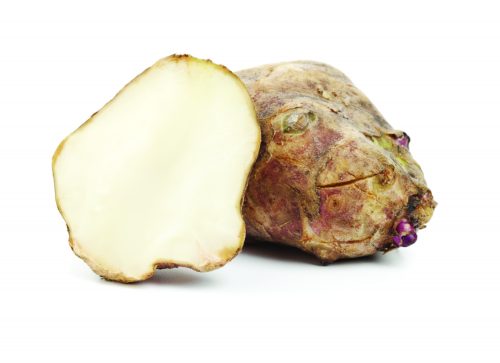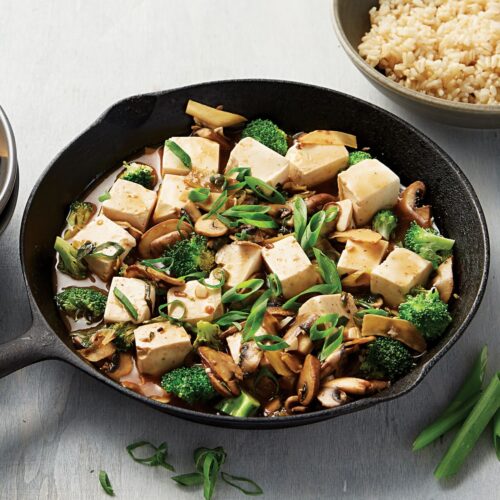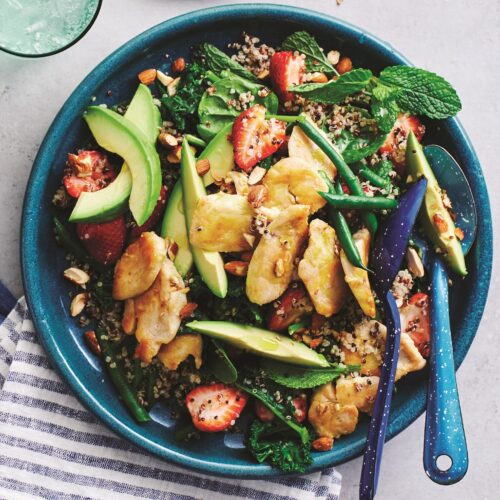
Jerusalem artichokes are related to the sunflower family and differ to globe artichokes. These knobbly tubers, available in autumn and through winter, are sweet, nutty and creamy in flavour and lend themselves to salads, soups, stir-fries, roasting, boiling, steaming and mashing. A squirt of lemon stops discolouration when cut.
Buying
Choose even-sized roots that are free from soil and bruising. Scrub, wash then drain before using.
Storing
Jerusalem artichokes will last up to two to three weeks stored in a plastic bag in the vegetable compartment of the refrigerator.
Nutrition
Jerusalem artichokes are a source of potassium and a good source of pre-biotic soluble fibre stored as inulin. Dietary fibre is valuable for supporting bowel health.
Using
- Toss Jerusalem artichokes and smashed garlic cloves in olive oil and season with salt and pepper. Roast in hot oven until caramelised and soft.
- Steam or microwave artichokes until tender then drain. Squish with back of wooden spoon and pan-roast with sliced bacon until golden brown. Add chopped fresh flat-leaf parsley and squeeze of lemon juice.
- Make a dressing by whisking lemon juice, olive oil and ground black pepper. Add finely sliced Jerusalem artichokes and green tomatoes to the dressing. Sprinkle with chopped parsley, toasted walnuts or hazelnuts. Great with cooked prawns or seafood.
- Use instead of water chestnuts in Asian dishes. Add sliced to stir-fries for crunch and sweetness.
- Make a soup. Soften sliced leeks in a splash of olive oil, add chopped artichokes, bay leaf and vegetable stock or water. Cook until vegetables are tender. Remove bay leaf and blend if you prefer. Add a dash of lemon juice to serve.
Did you know? Jerusalem artichokes originated from North America. Other names for Jerusalem artichokes are earth apple, sunchoke, sunroot or topinambour.
www.healthyfood.com










